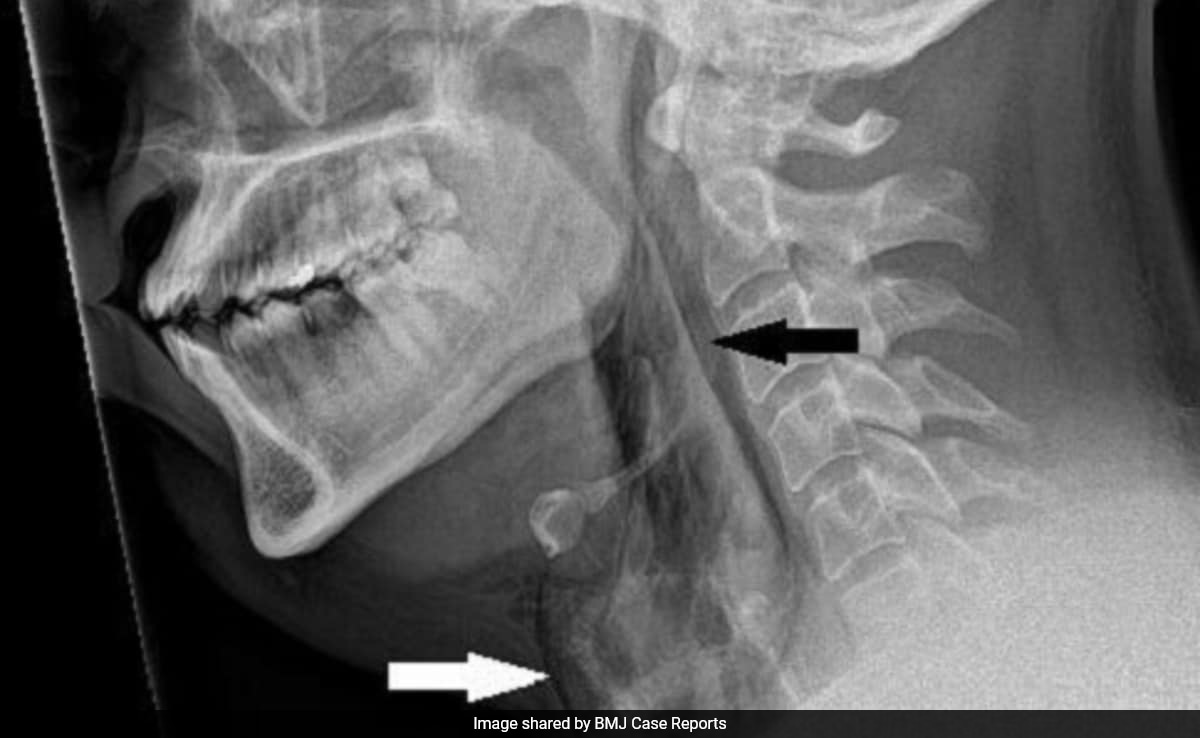
Doctors added that he did not require surgery.
A man tore his windpipe after he tried to hold in a sneeze, which medical professionals say is the first known case of its kind. The incident took place when the man suddenly experienced hay fever while driving his car. However, instead of placing his finger beneath his nose or letting the sneeze go uncontrollably, he squeezed his nose and closed his mouth. This strange sneeze control technique had just the opposite effect- the force of the suppressed sneeze caused a tiny, two-by-two-millimetre hole in his windpipe, according to a report in Live Science. The man’s airway closure caused pressure to build up, which induced a sneeze that was 20 times stronger than usual, causing horrific damage.
In this case, the pressure was so high that the man’s windpipe tore, measuring 0.08 by 0.08 inches. Further, the man went to seek medical attention as he was in severe pain and his neck swelled on both sides. The doctors examined him and heard a faint crackling sound. However, the man did not have any trouble breathing, talking or swallowing.
It was revealed by an X-ray that the man had surgical emphysema, a disease where air becomes trapped behind the skin’s deepest tissue layers. Subsequently, a CT scan showed that the rip was located between his neck’s third and fourth vertebrae. Additionally, air had gathered in the area between his lungs and his chest. The medical professionals concluded that the damage was caused by a “rapid build-up of pressure in the trachea while sneezing with a pinched nose and closed mouth.”
Doctors added that he did not require surgery. However, he was kept under observation at the hospital for two days to make sure his vital signs, including oxygen, remained stable. During discharge, doctors gave him painkillers and hay fever medicine and advised him to avoid any physically demanding activities for two weeks. A CT scan five weeks later showed that the tear had fully healed.
Several doctors stated that the case should be seen as a warning to others. “Everyone should be advised not to stifle sneezes by pinching the nose while keeping the mouth closed as it can result in tracheal (windpipe) perforation,” the authors wrote in the journal BMJ Case Reports.
Injuring one’s windpipe is extremely rare but not impossible, according to the doctors. There are very few documented examples, and when they do occur, it’s typically as a result of physical trauma or injuries sustained during surgery, including the thyroid gland or insertion of a tube into the windpipe. Usually, surgery is required to heal the damage, depending on the location of the rip and whether the patient’s vital signs are stable, they added.




